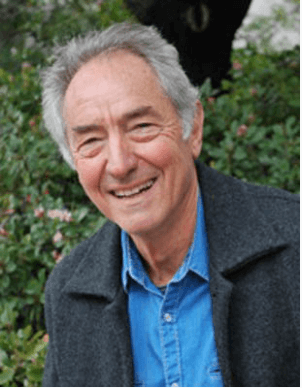
In 1968, philosopher Sam Keen was a straight-laced professor from Kentucky with Calvinist tendencies. When he read about a “human potential” movement happening in California, immediately he felt a call to adventure. “These were modes of thought that emphasized present-moment awareness and body therapies,” Sam says. “This was very alien to me, and I was fascinated; I felt compelled to investigate.”
Led by his curiosity, Sam arranged a sabbatical and embarked on a life-changing journey. Within hours of arriving at Esalen, he’d met its co-founder, Michael Murphy. “We started talking in the baths and we haven’t stopped yet,” Sam shares.
Fifty-one years later, the conversation between Sam, whose books and teachings have influenced international citizen diplomacy, the men’s movement and beyond, and Michael, the primary instigator of the human potential movement, is going strong.
“Certain friendships are so prismatic, the more you turn them over in your hands, the more facets you see,” says Michael. “Sam and I have had a wondrous set of agreements — and slight disagreements, which make the conversation more interesting.”
Sam’s upcoming What’s Next? Reviewing and Revisioning Our Lives workshop features a conversation with Michael, and if past experience is any indicator, the two friends will traverse the unfolding philosophical and mystical landscape of human nature with laughter and debate.
Sam and Michael describe themselves both as an odd couple and a match made in heaven, and for them that’s not a paradox. “I would say Michael was in the tradition of idealistic philosophy, the philosophy of mind and spirit, and of the transcendent,” Sam shares. “I was much more in the existentialist tradition. My heroes were Sartre, Camus, Kierkegaard. They said, we can’t really know the reality of things that are beyond reason. So when the idealists would talk about the oversoul, the existentialists would say, how do you know that? Mine was a more skeptical philosophy. Michael has a very playful philosophical mind. We would always play back and forth with that.”
“I could never have been turned on by Kierkegaard!” Michael responds. “I found my way to Sri Aurobindo and meditating. My trajectory in life has gone more toward the mystic. Sam teases me that I’m more ascetic, that I never go to the Esalen baths. I’m upstairs meditating. He lives more downstairs.”
Be that as it may, over the decades Sam and Michael have shared many projects and adventures that took them from philosophical realms to large-scale action. Sam cites the 1973 Esalen conference, Spiritual and Therapeutic Tyranny: The Willingness to Submit, as especially notable.
The conference, held in San Francisco, and for which Sam gave the keynote, was an attempt to address what Michael, Sam and Esalen co-founder Dick Price saw as the problematic aspects of religious authority, whether it be gurus or even Esalen’s own teachers. “In some ways that was some of our best work,” says Sam. “We attacked the gurus who were making these outrageous claims, and I think that was utterly necessary at the time for the culture to move forward.”
In the early 1980s Sam also was part of the Esalen Soviet-American Exchange Program — now Track Two: An Institute for Citizen Diplomacy — and traveled with Michael and Dulce Murphy to the USSR as part of an effort to improve the Soviet-American relationship during the Cold War. Sam moderated the first Spacebridge, which enabled Soviet and American citizens to speak directly to one another via satellite communication.
“I always have so much fun with Sam. When he plays his internal music, he can play a lot of different chords and melodies,” Michael reflects. “This conversation in March could be a very interesting evening.”
Learn more about Sam's upcoming workshop What’s Next? Reviewing and Revisioning Our Lives.
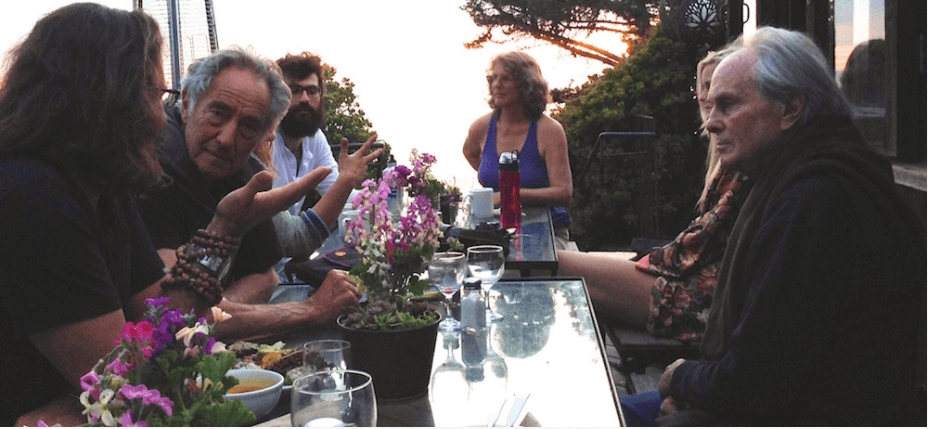
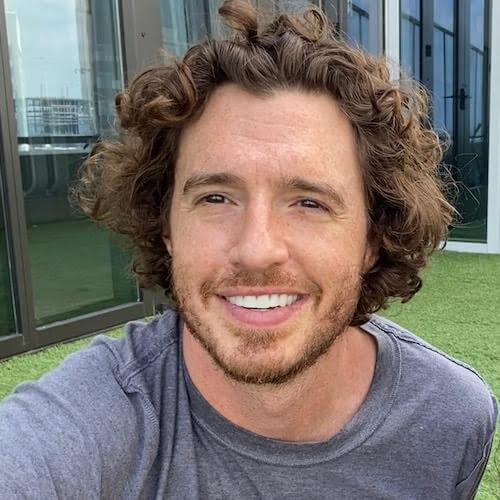
“Remembering to be as self compassionate as I can and praying to the divine that we're all a part of.”
–Aaron
“Prayer, reading, meditation, walking.”
–Karen
“Erratically — which is an ongoing stream of practice to find peace.”
–Charles
“Try on a daily basis to be kind to myself and to realize that making mistakes is a part of the human condition. Learning from our mistakes is a journey. But it starts with compassion and caring. First for oneself.”
–Steve
“Physically: aerobic exercise, volleyball, ice hockey, cycling, sailing. Emotionally: unfortunately I have to work to ‘not care’ about people or situations which may end painfully. Along the lines of ‘attachment is the source of suffering’, so best to avoid it or limit its scope. Sad though because it could also be the source of great joy. Is it worth the risk?“
–Rainer
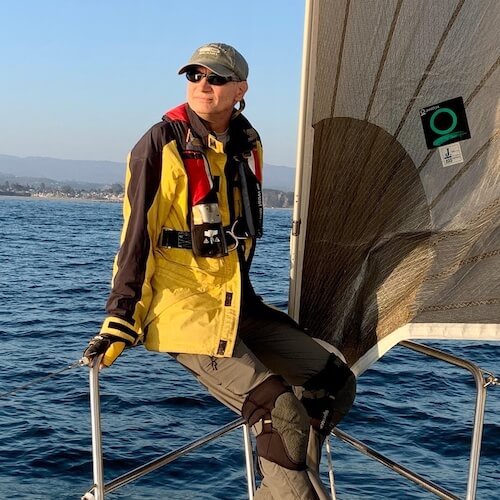

“It's time for my heart to be nurtured on one level yet contained on another. To go easy on me and to allow my feelings to be validated, not judged harshly. On the other hand, to let the heart rule with equanimity and not lead the mind and body around like a master.”
–Suzanne
“I spend time thinking of everything I am grateful for, and I try to develop my ability to express compassion for myself and others without reservation. I take time to do the things I need to do to keep myself healthy and happy. This includes taking experiential workshops, fostering relationships, and participating within groups which have a similar interest to become a more compassionate and fulfilled being.“
–Peter
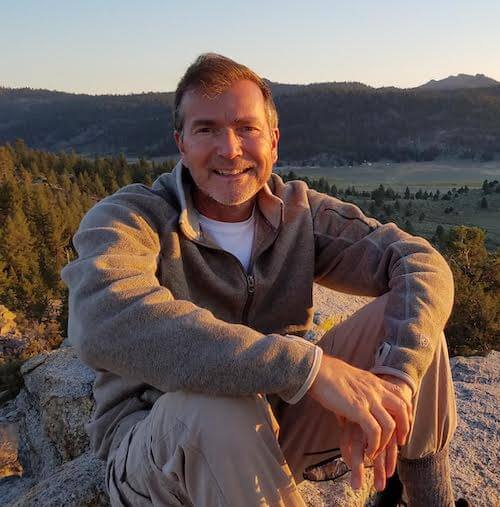
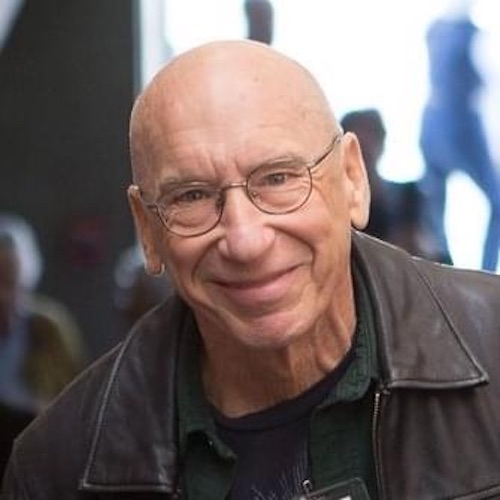
“Self-forgiveness for my own judgments. And oh yeah, coming to Esalen.”
–David B.
“Hmm, this is a tough one! I guess I take care of my heart through fostering relationships with people I feel connected to. Spending quality time with them (whether we're on the phone, through messages/letters, on Zoom, or in-person). Being there for them, listening to them, sharing what's going on with me, my struggles and my successes... like we do in the Esalen weekly Friends of Esalen Zoom sessions!”
–Lori

“I remind myself in many ways of the fact that " Love is all there is!" LOVE is the prize and this one precious life is the stage we get to learn our lessons. I get out into nature, hike, camp, river kayak, fly fish, garden, I create, I dance (not enough!), and I remain grateful for each day, each breath, each moment. Being in the moment, awake, and remembering the gift of life and my feeling of gratitude for all of creation.”
–Steven
“My physical heart by limiting stress and eating a heart-healthy diet. My emotional heart by staying in love with the world and by knowing that all disappointment and loss will pass.“
–David Z.
Today, September 29, is World Heart Day. Strike up a conversation with your own heart and as you feel comfortable, encourage others to do the same. As part of our own transformations and self-care, we sometimes ask for others to illuminate and enliven our hearts or speak our love language.
What if we could do this for ourselves too, even if just for today… or to start a heart practice, forever?

In 1968, philosopher Sam Keen was a straight-laced professor from Kentucky with Calvinist tendencies. When he read about a “human potential” movement happening in California, immediately he felt a call to adventure. “These were modes of thought that emphasized present-moment awareness and body therapies,” Sam says. “This was very alien to me, and I was fascinated; I felt compelled to investigate.”
Led by his curiosity, Sam arranged a sabbatical and embarked on a life-changing journey. Within hours of arriving at Esalen, he’d met its co-founder, Michael Murphy. “We started talking in the baths and we haven’t stopped yet,” Sam shares.
Fifty-one years later, the conversation between Sam, whose books and teachings have influenced international citizen diplomacy, the men’s movement and beyond, and Michael, the primary instigator of the human potential movement, is going strong.
“Certain friendships are so prismatic, the more you turn them over in your hands, the more facets you see,” says Michael. “Sam and I have had a wondrous set of agreements — and slight disagreements, which make the conversation more interesting.”
Sam’s upcoming What’s Next? Reviewing and Revisioning Our Lives workshop features a conversation with Michael, and if past experience is any indicator, the two friends will traverse the unfolding philosophical and mystical landscape of human nature with laughter and debate.
Sam and Michael describe themselves both as an odd couple and a match made in heaven, and for them that’s not a paradox. “I would say Michael was in the tradition of idealistic philosophy, the philosophy of mind and spirit, and of the transcendent,” Sam shares. “I was much more in the existentialist tradition. My heroes were Sartre, Camus, Kierkegaard. They said, we can’t really know the reality of things that are beyond reason. So when the idealists would talk about the oversoul, the existentialists would say, how do you know that? Mine was a more skeptical philosophy. Michael has a very playful philosophical mind. We would always play back and forth with that.”
“I could never have been turned on by Kierkegaard!” Michael responds. “I found my way to Sri Aurobindo and meditating. My trajectory in life has gone more toward the mystic. Sam teases me that I’m more ascetic, that I never go to the Esalen baths. I’m upstairs meditating. He lives more downstairs.”
Be that as it may, over the decades Sam and Michael have shared many projects and adventures that took them from philosophical realms to large-scale action. Sam cites the 1973 Esalen conference, Spiritual and Therapeutic Tyranny: The Willingness to Submit, as especially notable.
The conference, held in San Francisco, and for which Sam gave the keynote, was an attempt to address what Michael, Sam and Esalen co-founder Dick Price saw as the problematic aspects of religious authority, whether it be gurus or even Esalen’s own teachers. “In some ways that was some of our best work,” says Sam. “We attacked the gurus who were making these outrageous claims, and I think that was utterly necessary at the time for the culture to move forward.”
In the early 1980s Sam also was part of the Esalen Soviet-American Exchange Program — now Track Two: An Institute for Citizen Diplomacy — and traveled with Michael and Dulce Murphy to the USSR as part of an effort to improve the Soviet-American relationship during the Cold War. Sam moderated the first Spacebridge, which enabled Soviet and American citizens to speak directly to one another via satellite communication.
“I always have so much fun with Sam. When he plays his internal music, he can play a lot of different chords and melodies,” Michael reflects. “This conversation in March could be a very interesting evening.”
Learn more about Sam's upcoming workshop What’s Next? Reviewing and Revisioning Our Lives.


“Remembering to be as self compassionate as I can and praying to the divine that we're all a part of.”
–Aaron
“Prayer, reading, meditation, walking.”
–Karen
“Erratically — which is an ongoing stream of practice to find peace.”
–Charles
“Try on a daily basis to be kind to myself and to realize that making mistakes is a part of the human condition. Learning from our mistakes is a journey. But it starts with compassion and caring. First for oneself.”
–Steve
“Physically: aerobic exercise, volleyball, ice hockey, cycling, sailing. Emotionally: unfortunately I have to work to ‘not care’ about people or situations which may end painfully. Along the lines of ‘attachment is the source of suffering’, so best to avoid it or limit its scope. Sad though because it could also be the source of great joy. Is it worth the risk?“
–Rainer


“It's time for my heart to be nurtured on one level yet contained on another. To go easy on me and to allow my feelings to be validated, not judged harshly. On the other hand, to let the heart rule with equanimity and not lead the mind and body around like a master.”
–Suzanne
“I spend time thinking of everything I am grateful for, and I try to develop my ability to express compassion for myself and others without reservation. I take time to do the things I need to do to keep myself healthy and happy. This includes taking experiential workshops, fostering relationships, and participating within groups which have a similar interest to become a more compassionate and fulfilled being.“
–Peter


“Self-forgiveness for my own judgments. And oh yeah, coming to Esalen.”
–David B.
“Hmm, this is a tough one! I guess I take care of my heart through fostering relationships with people I feel connected to. Spending quality time with them (whether we're on the phone, through messages/letters, on Zoom, or in-person). Being there for them, listening to them, sharing what's going on with me, my struggles and my successes... like we do in the Esalen weekly Friends of Esalen Zoom sessions!”
–Lori

“I remind myself in many ways of the fact that " Love is all there is!" LOVE is the prize and this one precious life is the stage we get to learn our lessons. I get out into nature, hike, camp, river kayak, fly fish, garden, I create, I dance (not enough!), and I remain grateful for each day, each breath, each moment. Being in the moment, awake, and remembering the gift of life and my feeling of gratitude for all of creation.”
–Steven
“My physical heart by limiting stress and eating a heart-healthy diet. My emotional heart by staying in love with the world and by knowing that all disappointment and loss will pass.“
–David Z.
Today, September 29, is World Heart Day. Strike up a conversation with your own heart and as you feel comfortable, encourage others to do the same. As part of our own transformations and self-care, we sometimes ask for others to illuminate and enliven our hearts or speak our love language.
What if we could do this for ourselves too, even if just for today… or to start a heart practice, forever?

In 1968, philosopher Sam Keen was a straight-laced professor from Kentucky with Calvinist tendencies. When he read about a “human potential” movement happening in California, immediately he felt a call to adventure. “These were modes of thought that emphasized present-moment awareness and body therapies,” Sam says. “This was very alien to me, and I was fascinated; I felt compelled to investigate.”
Led by his curiosity, Sam arranged a sabbatical and embarked on a life-changing journey. Within hours of arriving at Esalen, he’d met its co-founder, Michael Murphy. “We started talking in the baths and we haven’t stopped yet,” Sam shares.
Fifty-one years later, the conversation between Sam, whose books and teachings have influenced international citizen diplomacy, the men’s movement and beyond, and Michael, the primary instigator of the human potential movement, is going strong.
“Certain friendships are so prismatic, the more you turn them over in your hands, the more facets you see,” says Michael. “Sam and I have had a wondrous set of agreements — and slight disagreements, which make the conversation more interesting.”
Sam’s upcoming What’s Next? Reviewing and Revisioning Our Lives workshop features a conversation with Michael, and if past experience is any indicator, the two friends will traverse the unfolding philosophical and mystical landscape of human nature with laughter and debate.
Sam and Michael describe themselves both as an odd couple and a match made in heaven, and for them that’s not a paradox. “I would say Michael was in the tradition of idealistic philosophy, the philosophy of mind and spirit, and of the transcendent,” Sam shares. “I was much more in the existentialist tradition. My heroes were Sartre, Camus, Kierkegaard. They said, we can’t really know the reality of things that are beyond reason. So when the idealists would talk about the oversoul, the existentialists would say, how do you know that? Mine was a more skeptical philosophy. Michael has a very playful philosophical mind. We would always play back and forth with that.”
“I could never have been turned on by Kierkegaard!” Michael responds. “I found my way to Sri Aurobindo and meditating. My trajectory in life has gone more toward the mystic. Sam teases me that I’m more ascetic, that I never go to the Esalen baths. I’m upstairs meditating. He lives more downstairs.”
Be that as it may, over the decades Sam and Michael have shared many projects and adventures that took them from philosophical realms to large-scale action. Sam cites the 1973 Esalen conference, Spiritual and Therapeutic Tyranny: The Willingness to Submit, as especially notable.
The conference, held in San Francisco, and for which Sam gave the keynote, was an attempt to address what Michael, Sam and Esalen co-founder Dick Price saw as the problematic aspects of religious authority, whether it be gurus or even Esalen’s own teachers. “In some ways that was some of our best work,” says Sam. “We attacked the gurus who were making these outrageous claims, and I think that was utterly necessary at the time for the culture to move forward.”
In the early 1980s Sam also was part of the Esalen Soviet-American Exchange Program — now Track Two: An Institute for Citizen Diplomacy — and traveled with Michael and Dulce Murphy to the USSR as part of an effort to improve the Soviet-American relationship during the Cold War. Sam moderated the first Spacebridge, which enabled Soviet and American citizens to speak directly to one another via satellite communication.
“I always have so much fun with Sam. When he plays his internal music, he can play a lot of different chords and melodies,” Michael reflects. “This conversation in March could be a very interesting evening.”
Learn more about Sam's upcoming workshop What’s Next? Reviewing and Revisioning Our Lives.


“Remembering to be as self compassionate as I can and praying to the divine that we're all a part of.”
–Aaron
“Prayer, reading, meditation, walking.”
–Karen
“Erratically — which is an ongoing stream of practice to find peace.”
–Charles
“Try on a daily basis to be kind to myself and to realize that making mistakes is a part of the human condition. Learning from our mistakes is a journey. But it starts with compassion and caring. First for oneself.”
–Steve
“Physically: aerobic exercise, volleyball, ice hockey, cycling, sailing. Emotionally: unfortunately I have to work to ‘not care’ about people or situations which may end painfully. Along the lines of ‘attachment is the source of suffering’, so best to avoid it or limit its scope. Sad though because it could also be the source of great joy. Is it worth the risk?“
–Rainer


“It's time for my heart to be nurtured on one level yet contained on another. To go easy on me and to allow my feelings to be validated, not judged harshly. On the other hand, to let the heart rule with equanimity and not lead the mind and body around like a master.”
–Suzanne
“I spend time thinking of everything I am grateful for, and I try to develop my ability to express compassion for myself and others without reservation. I take time to do the things I need to do to keep myself healthy and happy. This includes taking experiential workshops, fostering relationships, and participating within groups which have a similar interest to become a more compassionate and fulfilled being.“
–Peter


“Self-forgiveness for my own judgments. And oh yeah, coming to Esalen.”
–David B.
“Hmm, this is a tough one! I guess I take care of my heart through fostering relationships with people I feel connected to. Spending quality time with them (whether we're on the phone, through messages/letters, on Zoom, or in-person). Being there for them, listening to them, sharing what's going on with me, my struggles and my successes... like we do in the Esalen weekly Friends of Esalen Zoom sessions!”
–Lori

“I remind myself in many ways of the fact that " Love is all there is!" LOVE is the prize and this one precious life is the stage we get to learn our lessons. I get out into nature, hike, camp, river kayak, fly fish, garden, I create, I dance (not enough!), and I remain grateful for each day, each breath, each moment. Being in the moment, awake, and remembering the gift of life and my feeling of gratitude for all of creation.”
–Steven
“My physical heart by limiting stress and eating a heart-healthy diet. My emotional heart by staying in love with the world and by knowing that all disappointment and loss will pass.“
–David Z.
Today, September 29, is World Heart Day. Strike up a conversation with your own heart and as you feel comfortable, encourage others to do the same. As part of our own transformations and self-care, we sometimes ask for others to illuminate and enliven our hearts or speak our love language.
What if we could do this for ourselves too, even if just for today… or to start a heart practice, forever?